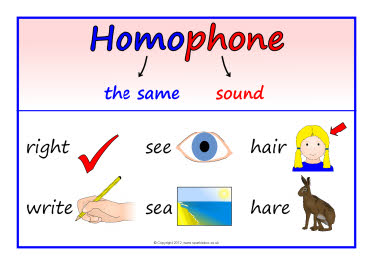The Fear of Things That Sound Like Things You Shouldn’t Be Afraid of Anyway

If you’re a professional writer, having command of homophones — two or more words with the same pronunciation, but different meanings and/or spellings — is critical. Sure, the occasional error is okay, but if you write sentences like “The boy’s ants new the write weigh two go,” you’re probably not going to keep your job for too long. This is doubly true if your writing gig is with an educational company whose core focus is on teaching English. Homophones can get you fired.Or you could understand homophones perfectly, write a blog post about them for that very same educational company, and get fired anyway — because your boss, is, let’s say, is homophonophobic.
Just ask a blogger (and former clown — check out the image here) named Tim Torkildson. For three months in 2014, Torkildson was a social media specialist and blogger for the Nomen Global Language Center, a Utah-based English-language school for non-English speakers. In July of that year, as part of that job, Torkildson wrote a blog post (once available here but now deleted) for Nomen’s official blog. Titled “Help with Homophones. #1,” the missive was hardly a manifesto — it simply instructed readers about a few trap words which sound alike but are spelled differently. (A screenshot of the post, cached, can be found here, via the Daily Mail.) It seemed entirely appropriate for the job Torkildson was hired to do, and innocuous nonetheless.
His boss didn’t see it that way. As Torkildson recounted on another now-deleted (but in this case, archived, here) blog post, the first chapter of his homophones work would be his last:
“I’m letting you go because I can’t trust you” said Clarke Woodger, my boss and the owner of Nomen Global Language Center. “This blog about homophones was the last straw. Now our school is going to be associated with homosexuality.”
I said nothing, stunned into silence.
“I had to look up the word” he continued, “because I didn’t know what the hell you were talking about. We don’t teach this kind of advanced stuff to our students, and it’s extremely inappropriate. Can you have your desk cleaned out by eleven this morning? I’ll have your check ready.”
The first people to comment on Torkildson’s blog post thought he was joking. But he was serious. Woodger, per the Salt Lake City Tribune, confirmed that Nomen and Torkildson had parted ways, but denied that the termination had anything to do with homosexuality. His explanation, per the Tribune, was that Torkildson “would ‘go off on tangents’ in his blogs that would be confusing and sometimes could be considered offensive.” For example, in Woodger’s words, “people at this level of English may see the ‘homo’ side and think it has something to do with gay sex.”
(Apparently, to Nomen, “teaching English” doesn’t include “teaching what words and word roots mean.”)
Unfortunately for Torkildson, the job as a blogger for Nomen was his only one — and he didn’t have much in the way of savings or otherwise. At the time of his termination, per Newsweek, he was homeless, living in a friend’s basement; after being fired by Nomen, applied for public assistance. He hasn’t disclosed whether he’s landed on his feet, but he tried to raise $9,000 to relocate to Thailand and now writes poems about trending news stories on his rebooted personal blog. The former was not very successful, raising under $300, but the latter has turned out pretty well. In January of 2015, Torkildson’s poems were profiled by the New York Times, and favorably.
 Bonus Fact: If you grew up in the United States, you know the answer to the joke “what’s black and white and red all over?” is “a newspaper.” The joke relies on the fact that the words “red” and “read” are homophones, which is great if you speak English — but doesn’t work in languages where the two terms aren’t homophones. The solution is the same in French, Italian, and German, according to Wikipedia: the name of a local Communist newspaper is used as the punchline.
Bonus Fact: If you grew up in the United States, you know the answer to the joke “what’s black and white and red all over?” is “a newspaper.” The joke relies on the fact that the words “red” and “read” are homophones, which is great if you speak English — but doesn’t work in languages where the two terms aren’t homophones. The solution is the same in French, Italian, and German, according to Wikipedia: the name of a local Communist newspaper is used as the punchline.
From the Archives: Two stories about homophones (or close to it): why piggy banks are called piggy banks and why “love” means “zero” in tennis.
Take the Quiz: How well do you know your homophones?
Related: Tim Torklidson has written two books, both about circuses and clowns. They’re listed on Amazon, here and here, but are not readily available.
